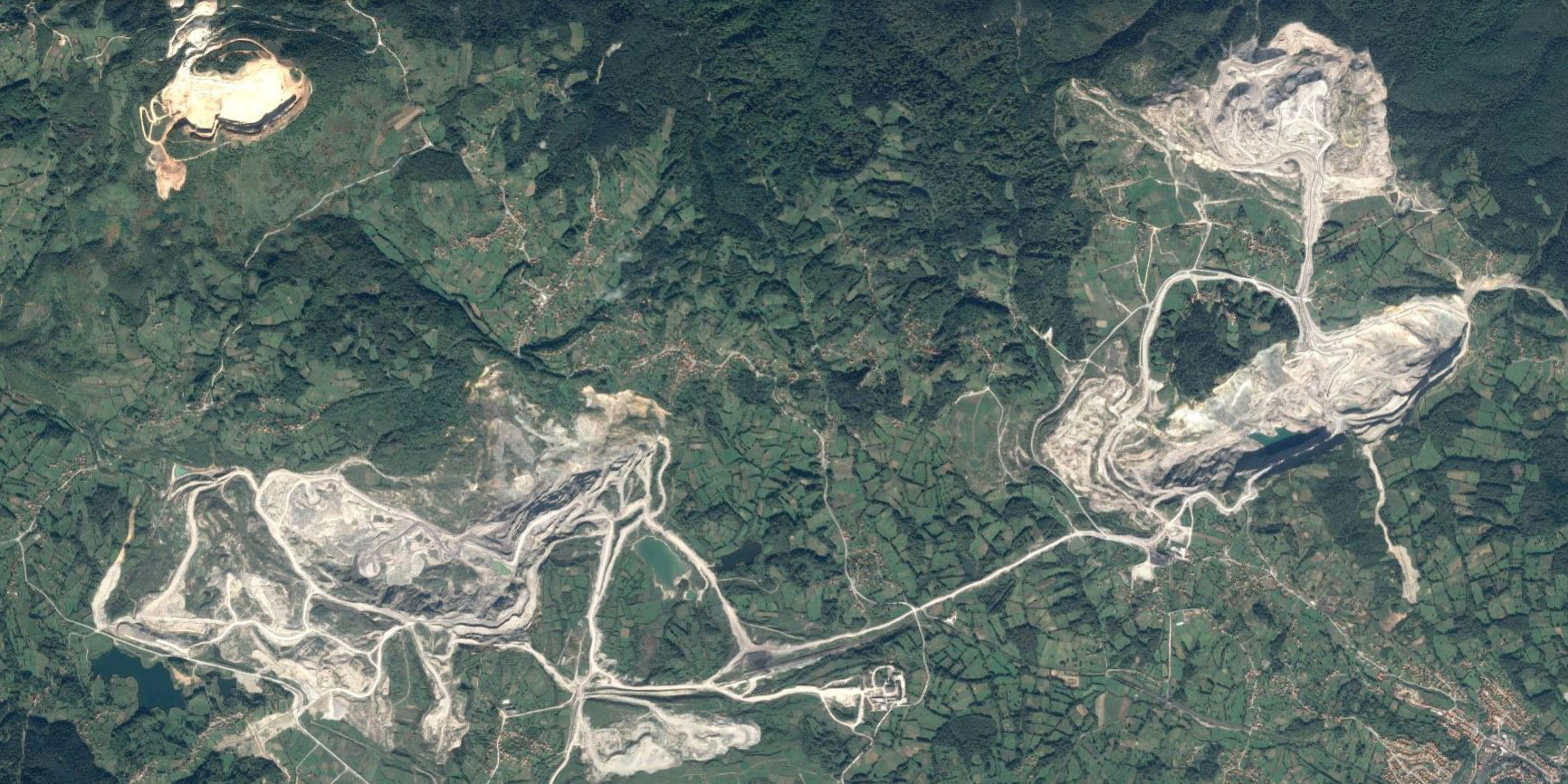Banovici lignite power plant, Bosnia and Herzegovina
The 350 MW Banovići coal power plant project was planned alongside the existing Banovići mine just a few kilometres away from Tuzla by the predominantly state-owned RMU Banovići (Banovići Brown Coal Mines).

Stay informed
We closely follow international public finance and bring critical updates from the ground.
Background
The 350 MW Banovići coal power plant project was planned alongside the existing Banovići mine just a few kilometres away from Tuzla by the predominantly state-owned RMU Banovići (Banovići Brown Coal Mines). In 2015, a construction contract was signed with China’s Dongfang, the same company which built the Stanari plant. As of early 2024 it seems highly unlikely that the plant will go ahead, but it has not been officially cancelled.
Mystery economics
The project’s economics have been kept under wraps and no feasibility study is publicly available.
Financing was sought from the Industrial and Commercial Bank of China (ICBC), but was never signed. The project is supposed to cost EUR 405 million. It also appears that a guarantee by the Federation of BiH government would be required, raising questions about compliance with State aid rules under the Energy Community Treaty.
'Hostages of coal'
An AlJazeera report on the situation of people affected by the coal infrastructure in Tuzla and Banovici.
Local language only.
Legal violations
The environmental permit for the Banovići power plant was renewed in early 2016, but failed to cover numerous issues and prescribe precise mitigation measures. NGO Ekotim therefore filed a court case seeking to annul the permit in April 2016. The court case was rejected in late 2019 on the spurious grounds that a Sarajevo-based NGO cannot complain about a project sited near Tuzla – a verdict that was appealed at the Federal Supreme Court, as well as being subject to a complaint to the Aarhus Convention. Before the court ruled on the case, the permit expired in early 2021, and does not appear to have been renewed.
No transboundary consultation was carried out for the plant’s environmental assessment, even though this is required under the Espoo Convention. After a complaint was made to the Convention’s Implementation Committee, Bosnia and Herzegovina pledged to carry out transboundary consultations for any renewal of the plant’s environmental permit.
Scarce water resources
In order to obtain water for the Banovići plant, the small existing Ramići lake would be expanded into a larger reservoir. However it is not clear that the runoff from the surrounding hills could provide enough water. Another issue is the structural soundness of the earth dam which is planned to hold back the water at Ramići.
Initial proposals included using water from the Turija river to fill the reservoir during dry periods, however this would then deprive Modrac, and thus the Tuzla power plant and the people of Tuzla, of a significant source of water. More recent proposals have focused on taking water from Lake Breštica which is located in the Spreča river basin, but this would have the same result. The issue remains unsolved. For this reason Ekotim filed a court complaint against the environmental permit for the reservoir in April 2016, which was also rejected in late 2019 and was appealed to the Federal Supreme Court.
In September 2019 it was reported that RMU Banovići had failed to obtain a water consent for the Ramići reservoir from the Tuzla cantonal authorities, as it had tried to extend the validity of a previous one which had already expired.
Construction permit refused
The project has received on-and-off high level support from the Federal authorities in Bosnia-Herzegovina. However in December 2017, it was announced that the project had been refused a preliminary construction permit due to unresolved issues around water consumption, coal supply, flue gases, ash disposal and other issues.
Latest news
Balkan governments unprepared for new EU pollution rules
Blog entry | 17 August, 2017New EU rules entering into force today, to limit pollution from power plants, will also apply in most Western Balkan countries. But the region’s governments are so far acting like they don’t exist.
Read moreWhat will it take to make Balkan leaders realise new coal plants are a liability, not a gold mine?
Blog entry | 16 June, 2017Almost all the countries in the Balkan region are planning to build new coal power plants, but there has been virtually no mention of the need for them to comply with new pollution standards.
Read morePlanned coal power in the Balkans will breach new EU pollution standards – analysis
Press release | 14 June, 2017Almost none of the new coal power plants planned in the Western Balkans will meet new, stricter EU pollution standards, according to a new analysis by CEE Bankwatch Network, released today.
Read moreRelated publications
Western Balkan coal power plants polluted twice as much as those in the EU in 2019
Briefing | 12 July, 2021 | Download PDFThe non-compliance of Western Balkan coal power plants with the emission limits enshrined in the Energy Community Treaty is reflected in the region’s high sulphur dioxide (SO2), nitrogen oxides (NOX) and dust emissions. This briefing looks mainly at th
The great coal jobs fraud (2018 UPDATE)
Study | 28 June, 2018 |This study, an update of our November 2016 analysis, examines the claims and finds that in almost all cases, they are exaggerated. In fact, even the current levels of employment cannot be maintained and some companies such as Elektroprivreda Srbije and
Planned coal power plants in the Western Balkans versus EU pollution standards
Study | 14 June, 2017 | Download PDFThe new reference document on Best Available Techniques for Large Combustion Plants (LCP BREF) and its implications for new coal. Available languages: ENG – download pdf BiH – Planirane termoelektrane na ugalj u zemljama Zapadnog Balkana nasuprot stand
